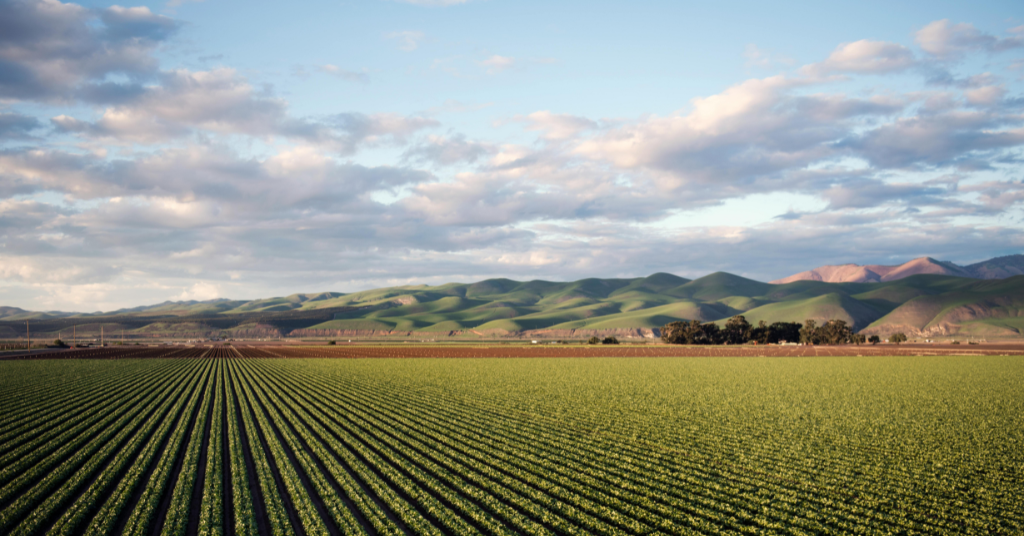As climate change accelerates, sustainable agriculture has become a critical focus for the European Union (EU). In 2025, the EU is furthering its commitment to green farming initiatives with policies and technologies that help farmers reduce emissions, enhance biodiversity, and foster long-term food security.
Key EU policies supporting green farming
- The EU Green Deal and Farm to Fork strategy
The European Green Deal, which sets a roadmap for the EU to become carbon-neutral by 2050, places agriculture at the forefront of its sustainability efforts. One of its major components, the Farm to Fork Strategy, is focused on making food systems fair, healthy, and environmentally-friendly. By 2025, the strategy aims to reduce the environmental and climate footprint of agriculture, ensuring that farmers adopt sustainable practices such as reduced pesticide use, organic farming, and crop diversification.
For instance, the EU has set a target to have 25% of agricultural land under organic farming by 2030, a goal that is expected to drive growth in organic farming practices in the coming years. In countries like Denmark, the government has committed to a 100% organic farming target by 2030, providing a model for others in Europe.
- Common agricultural policy (CAP)
The CAP has undergone significant reforms to encourage sustainable farming. In 2025, the new CAP will focus more heavily on environmental sustainability, integrating eco-schemes that provide financial support to farmers who adopt environmentally-friendly practices. This includes funding for farmers who reduce their pesticide and fertilizer use, enhance soil health, or implement crop rotation and agroforestry. These eco-schemes are crucial in helping farmers transition to more sustainable practices while maintaining economic viability.

For example, France has embraced agroforestry, integrating trees with crops to promote biodiversity and reduce the need for chemical inputs. This is just one of many practices supported by the CAP’s new guidelines.
Technologies helping farmers reduce emissions
- Precision farming and digital tools
By 2025, precision farming technologies are expected to be more widely adopted across Europe, enabling farmers to use resources more efficiently and reduce emissions. Precision farming involves using data-driven techniques to monitor soil health, water usage, and crop conditions. By using sensors, drones, and satellites, farmers can apply fertilizers and pesticides only when and where needed, thus minimizing waste and reducing environmental impact.
For instance, Germany has seen the success of precision farming technologies, where farmers use variable rate application systems to adjust fertilizer levels depending on the needs of specific areas of a field. This reduces overuse of fertilizers, which is a major source of agricultural greenhouse gas emissions.
- Methane-reducing technologies in livestock farming
Livestock farming is another significant contributor to agricultural emissions, especially in terms of methane emissions. The EU is supporting the development of methane-reducing technologies in livestock farming, especially in cattle. By 2025, the EU expects more widespread use of feed additives, such as 3-NOP (a methane-reducing compound), which can significantly reduce methane emissions from cows.

Source: MPI
In countries like Ireland, which has one of the highest rates of cattle farming in Europe, efforts are already underway to implement these feed additives on a larger scale. This is expected to reduce the methane emissions of the agricultural sector, helping the EU meet its climate targets.
- Agroecology and regenerative farming
Agroecology, which incorporates ecological principles into farming practices, is also gaining momentum. This includes regenerative agriculture practices like no-till farming, cover cropping, and rotational grazing, which aim to restore soil health, enhance biodiversity, and sequester carbon in the soil. The EU is promoting these practices through research funding and technical support for farmers adopting regenerative techniques.
For example, Spain has launched initiatives to promote regenerative farming practices in dryland areas, where soil erosion is a growing concern. These practices not only improve soil fertility but also help farmers adapt to changing climate conditions, such as droughts and irregular rainfall patterns.
The Role of research and innovation
The EU is also investing in agricultural research to promote new technologies that can help farmers reduce emissions. The Horizon Europe program funds innovative research in sustainable agriculture, with an emphasis on reducing carbon footprints and improving resilience to climate change.
For example, Belgium is home to several research projects aimed at developing low-carbon farming techniques. These projects focus on improving crop resilience to extreme weather conditions while reducing the need for chemical inputs. The research supports the development of more resilient crop varieties and efficient irrigation systems that conserve water and reduce energy consumption.
Supporting farmers through education and funding
As part of its broader support for green farming, the EU is also focused on educating farmers and providing financial incentives to adopt green farming practices. Through the European Innovation partnership (EIP-AGRI), the EU facilitates knowledge-sharing between farmers, researchers, and agribusinesses. By 2025, these initiatives will help farmers access the latest best practices, tools, and technologies to reduce emissions and increase sustainability.
Farmers can also apply for funding under various EU programs to help with the transition to sustainable agriculture. These include grants for adopting renewable energy solutions on farms, such as solar panels and wind turbines, and funding for the development of biodiversity-friendly farming practices.
Final thoughts:
The path forward – By 2025, the EU’s push for sustainable agriculture will be increasingly shaped by both policy and technological advancements. Through the European Green Deal, the Farm to Fork Strategy, and the CAP, the EU is providing the framework to help farmers reduce emissions while ensuring long-term food security. At the same time, innovations in precision farming, methane-reducing technologies, and agroecology are empowering farmers to adopt more sustainable practices.
While the road to a fully sustainable agricultural system is long, these initiatives are taking Europe closer to its goal of a green, resilient, and sustainable farming future. Through continued investment in research, technology, and farmer education, the EU is paving the way for a farming system that is not only environmentally sustainable but also economically viable in the face of climate change.
Sources and references:
https://www.mpi-marburg.mpg.de/96211/2016_05_a
https://agriculture.ec.europa.eu/common-agricultural-policy/cap-overview/cap-glance_en




